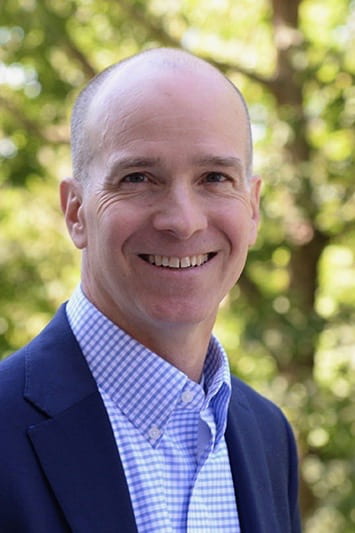How We Respond Speakers
Tim Benally — Tim Benally is a Penn State senior majoring in psychology and is the president and founder of the Indigenous Peoples Student Association. He has also begun work on a University Land Acknowledgment, which is a formal statement that recognizes Indigenous Peoples as the original stewards of Penn State’s land and pays respect to the relationship with their original territories. His plans for the future include pursuing a doctorate in clinical psychology and returning to the Navajo reservation in order to implement culturally sensitive mental health research and interventions. He has been awarded a Udall Foundation Scholarship for his demonstrated commitment to improving health care for Native Americans living in the Navajo reservation. He is also a Cobell Scholar, a national scholarship program named for Elouise Cobell, the pioneering activist celebrated in the film 100 Years: One Woman’s Quest for Justice. Tim participated in the post-film discussion of 100 Years.

Adrian Benedetti — Adrian Benedetti was born in Panama, but lived in Colorado and California for significant amount of time. Growing up surrounded by jungles, oceans, rivers, and mountains made him very aware of nature’s fragile beauty, inspiring him to dedicate his life to a career in environmental conservation. Adrian obtained a BA from the University of Colorado and a MS in Human Dimensions of Natural Resource Management from Colorado State University. He is currently working towards a PhD in Recreation Park and Tourism Management at Penn State University. Adrian has worked in various spheres of the conservation world: as an environmental education practitioner, zoo and botanical garden Director, and as Director of Panama’s Protected Areas and Biodiversity Department. However, his passion for outdoor recreation (backpacking, kayaking, mountaineering) is at the heart of his current work. In 2013, he founded Caminando Panamá, a Panama-based NGO, which works to foster an outdoor recreation community among Panamanians. While at Penn State he helped start the PA chapter of Latino Outdoors. His research interests are focused on the intersection of environmental justice, conservation, tourism, outdoor recreation, and protected area management. Adrian participated in the post-film discussion for An American Ascent.
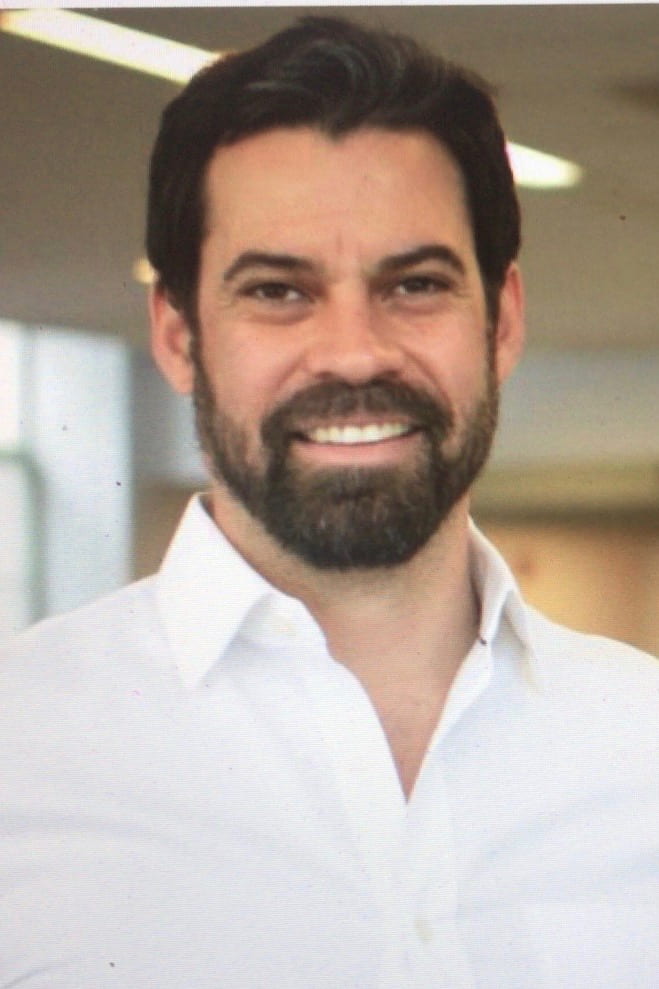
Scott Briscoe — Scott Briscoe is an experienced community bridge builder with a demonstrated ability to inspire small and large teams through cultural growth that leads to inclusivity and equity within an organization. His leadership roles include spearheading justice, equity, diversity, and inclusion (JEDI) conversations at Patagonia, serving as an acting member of Board Advisory Committee at NOLS, as a member of the Steering Committee for Diversity Outdoors Pledge, as Honorary Co-Chair at The Organization for Tropical Studies and as a board member at The Brown Ascenders. He is the founder and executive director of WeGotNext, an organization dedicated to amplifying individual stories of adventure and activism from communities that have been underrepresented in outdoor, conservation and environmental spaces. Scott discussed (and was featured in) An American Ascent.
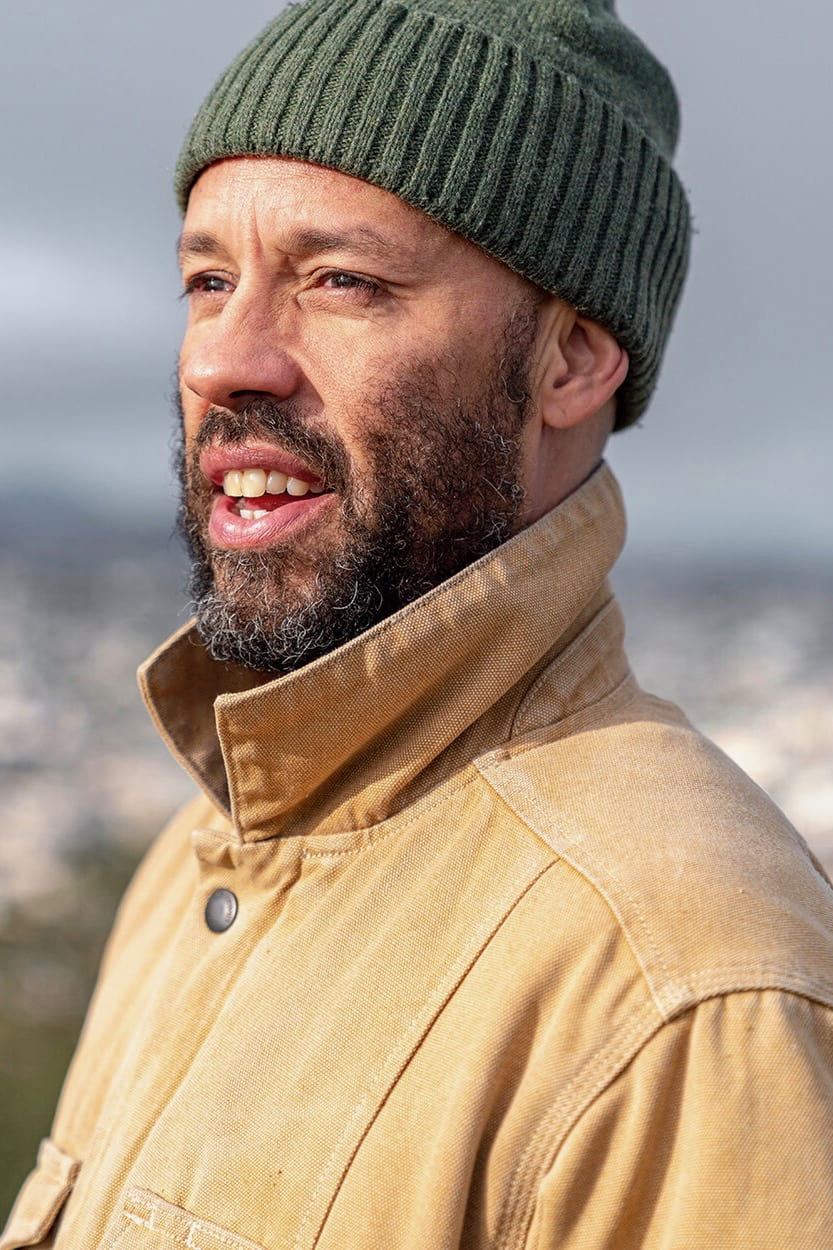
Scott Case – Scott is a farmer in East Penns Valley at Patchwork Farm, a diversified organic farm with greenhouses in spring and cut flowers and outdoor farming in summer. Scott has also been the board chairman for Pennsylvania Association for Sustainable Agriculture (PASA) for six years. He can be contacted at casefarm@hotmail.com. Scott joined us for a post-film conversation after Farmsteaders.

Frank Christopher — Frank Christopher is the director of WPSU’s Water Blues, Green Solutions. He has more than 40 years of award-winning experience as a writer, producer, and director both independently and for several PBS stations. He was a senior writer and producer for WPSU for seven years during which time he created Water Blues, Green Solutions, which won a Mid-Atlantic Emmy and Cine Golden Eagle Award in 2014. His other works have ranged from historical documentaries about Nat Turner to social documentaries about Vietnam War veterans and changes in American medicine. Frank participated in the post-film discussion of Water Blues, Green Solutions.
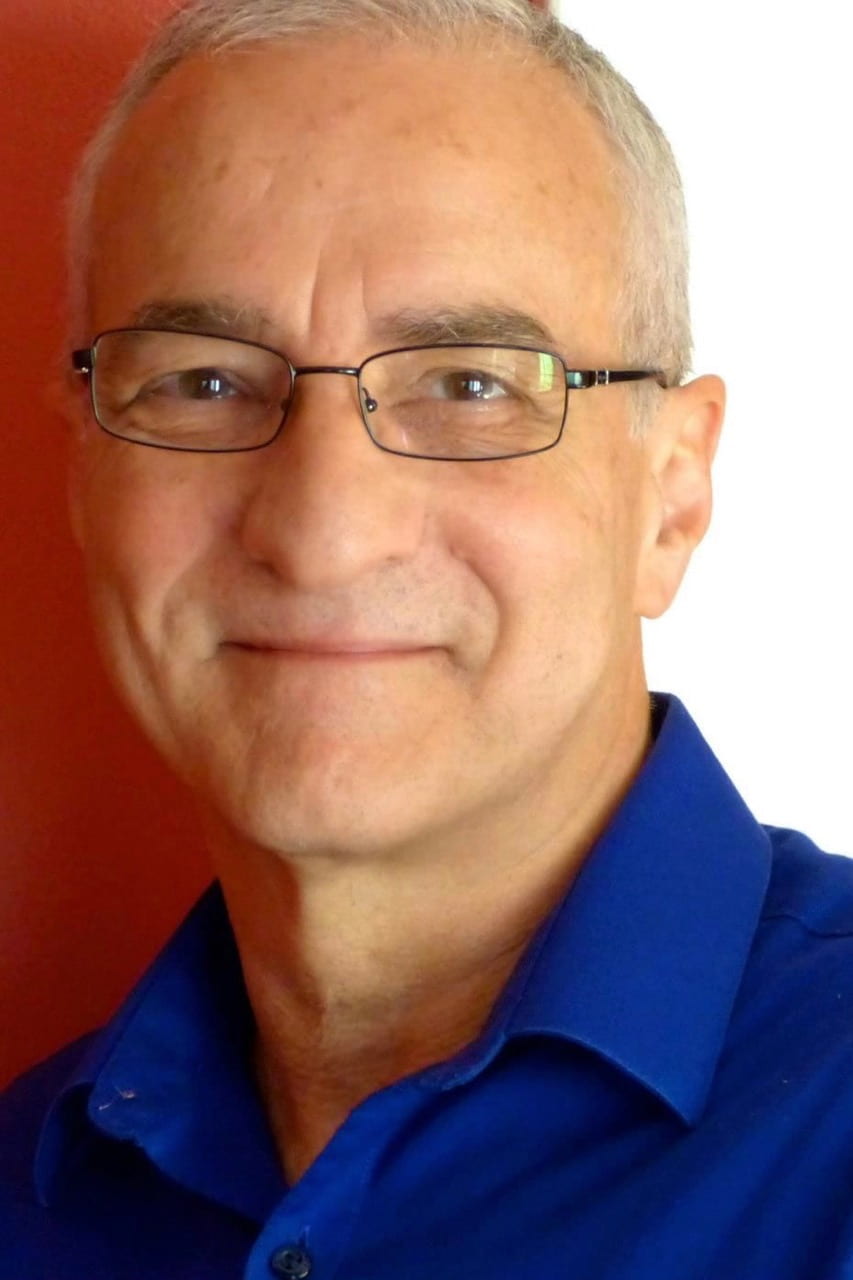
Cristina Ibarra – Cristina is a Sundance award-winning filmmaker with a 20-year practice rooted in her border crossing roots along the Texas-Mexico border. She has created or co-created many films, including The Infiltrators, which won the Audience and the Innovator Award in the NEXT section at the Sundance Film Festival in 2019, and Las Marthas, which The New York Times calls “a striking alternative portrait of border life.” She is the recipient of fellowships from Soros, Rauschenberg, Rockefeller, NYFA, CPB/PBS, NALIP, Firelight, the Sundance Women’s Initiative and Creative Capital, among others. She can be contacted at http://www.cristinaibarra.com/contact. Cristina joined us for a post-film discussion of The Infiltrators.
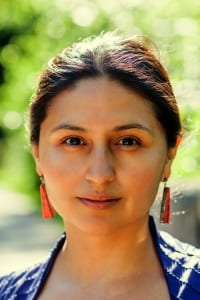
Slater Jewell-Kemker – Slater has been making films since she was six. An award-winning filmmaker and climate activist, Slater has been featured in Forbes twice and selected by the Hollywood Reporter as one of 15 filmmakers under 30 to watch. She is an accomplished speaker and is frequently invited to speak on climate change panels to represent the voice of youth. She lives in a tiny house on wheels on her farm in Southern Ontario, Canada. Slater joined us to introduce her film Youth Unstoppable.

Dr. Mihyun Kang — Mihyun Kang is the director for sustainability in Penn State’s College of Arts and Architecture and a research professor within the Stuckeman School. She holds a Ph.D. in Interior Design from the University of Minnesota and came to Penn State from Oklahoma State University, where she was a professor and the holder of the Chris Salmon Endowed Professorship in the Department of Design, Housing and Merchandising. Her research focuses on sustainable interior design and design for special populations. Previously, she taught at the University of California at Davis and worked as an interior designer at Ellerbe Becket in Minneapolis, Minnesota and the Hyundai Wood Industries Co. Ltd. in Seoul, Korea. Mihyun introduced the evening of films, Art, Society & Place Short Films.

Dr. Heather Karsten – Dr. Karsten is an associate professor at Penn State in the Plant Science Department, who focuses on the subjects of agroecology, conservation and dairy cropping systems, and pasture ecology and grazing management. She is also highly involved in the Pennsylvania Association for Sustainable Agriculture (PASA), working with farmers. She can be contacted at hdk3@psu.edu. Heather joined us for a post-film conversation after Farmsteaders.

Dr. Hollie Kulago – Hollie Kulago is an associate professor of education at Penn State. She came to Penn State from teaching at Elmira College and her research focuses, among other things, on Indigenous teacher education; critical Indigenous curriculum and pedagogy (centering indigenous knowledges and philosophies); current teacher education certification examination requirements for Indigenous teacher candidates; and Indigenous family, school, and community relationships. She is working to establish a land-based pedagogy at Penn State. Hollie is Diné (Navajo), originally from the Navajo Nation in Arizona. She joined us for a post-film conversation after 100 Years: One Woman’s Quest for Justice.
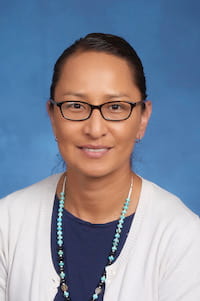
Dr. Lauren McPhillips – Lauren McPhillips is an Assistant Professor at Penn State in Civil & Environmental Engineering, with a co-appointment in Agricultural & Biological Engineering. She originally hails from the Hudson River Valley in New York State and received her bachelor’s, master’s, and doctorate from Cornell University. She works on challenges related to sustainable and resilient management of water in human-dominated landscapes. She has authored and co-authored numerous scholarly articles on water infrastructure, including the role of green stormwater infrastructure in managing extreme precipitation events. Prior to coming to Penn State, she was a research fellow at Arizona State’s Global Institute of Sustainability and part of the Urban Resilience to Extremes Sustainability Research Network. Lauren joined us for the post-film discussion following Water Blues, Green Solutions.
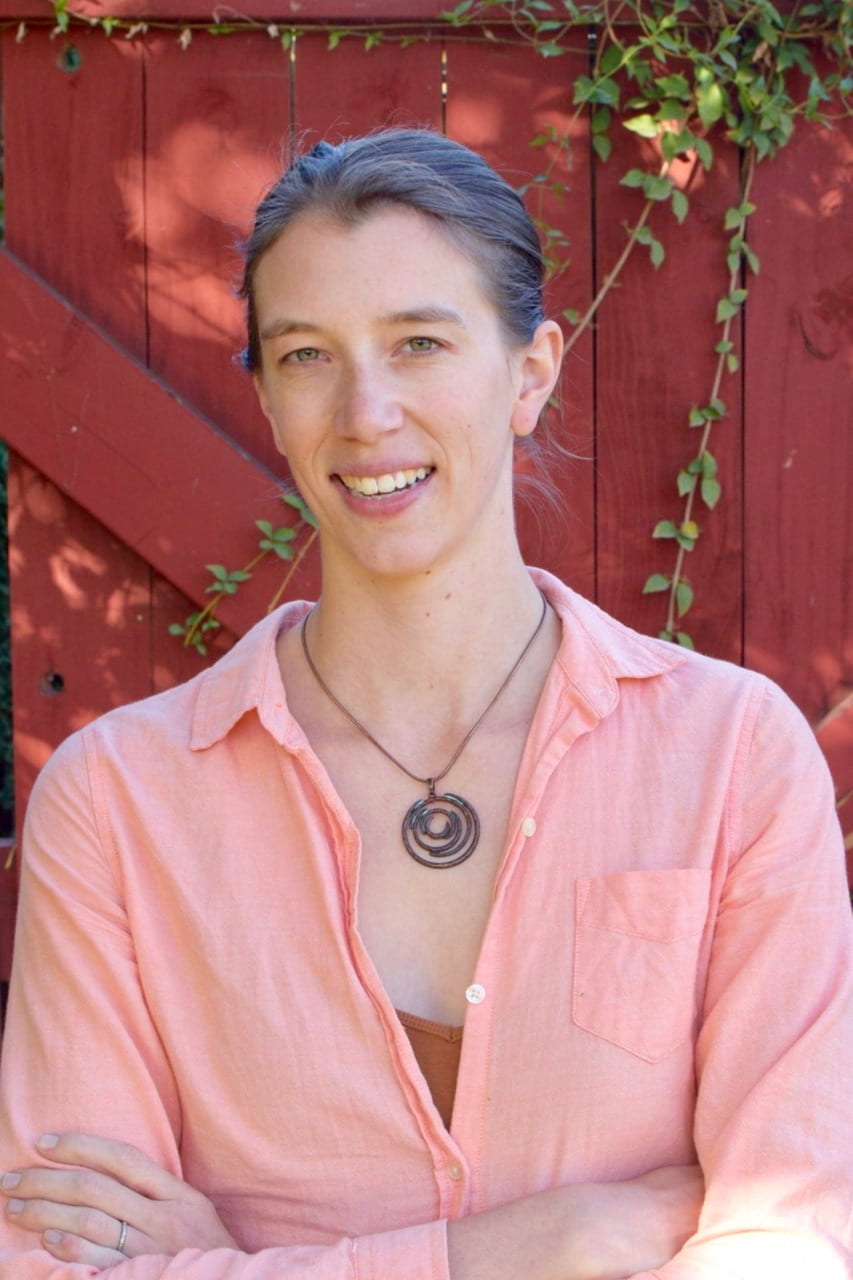
Tyrhee Moore — Tyrhee Moore is a mountaineer and outdoor education advocate born and raised in southeast Washington, D.C. The West Virginia University graduate has amassed an impressive list of high acclaimed climbs – including Grand Teton, Kilimanjaro, Aconcagua, and the first all African American team to climb Denali. Through his personal outdoor experiences, he became passionate about diversity in the outdoors and speaks around the country on topics regarding the adventure gap and conservation leadership. In 2018, Tyrhee founded Soul Trak Outdoors, a D.C.-based nonprofit organization that connects communities of color to outdoor spaces while also building a coalition of diverse outdoor leaders. The company runs a variety of programming that reaches youth, college students, and adults within the community who are seeking opportunities for new adventure and learning. By engaging minorities, the goal is to develop a representative community in the outdoors that reflects our nation, and to facilitate educational and skill-based instruction to expand understanding and interest in public lands. Tyrhee participated in the post-film conversation of An American Ascent.

Tracy Peterson — Tracy Peterson is the director of student transitions and pre-college programs in Penn State College of Engineering’s Center for Engineering Outreach and Inclusion (CEOI). He works on establishing regional and national outreach and engagement through pre-college programs, developing programs to enhance college readiness and increasing the participation and support of underrepresented, low-income and first-generation college students. He previously served as the director of the American Indian Program House at Cornell University and as Director of Diversity and Outreach Programs at the University of Iowa. A member of the Diné (Navajo) Nation, Tracy is a Cobell Scholar, a national program named for Elouise Cobell, the pioneering activist who is the subject of the film 100 Years: One Woman’s Quest for Justice. Tracy joined us for the post-film discussion of 100 Years.
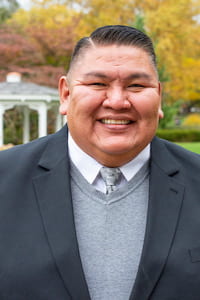
Alex Rivera – Alex is a filmmaker who’s been telling ground-breaking Latino stories for more than twenty years. His first feature film, a cyberpunk thriller set in Tijuana, Mexico, Sleep Dealer, won multiple awards at Sundance and was screened around the world. Rivera’s second feature film, a documentary/scripted hybrid set in an immigrant detention center, The Infiltrators, won both the Audience Award and the Innovator Award at the 2019 Sundance Film Festival. Rivera’s work has been supported by the Ford Foundation, the Tribeca Film Institute, the Open Society Institute, and many others. He can be contacted at http://alexrivera.com/contact-me/. Alex joined us for a post-film discussion of The Infiltrators.

Manuel Rosaldo – Manuel Rosaldo is an Assistant Professor of Labor and Employment Relations at Penn State University. His research focuses on the potentials and constraints for labor rights organizing among precarious informal workers, who have historically been excluded from both labor rights legislation and labor unions. His PhD at the University of California at Berkeley analyzed waste pickers’ struggles to win state recognition and remuneration for their labor in Brazil and Colombia. He also holds a Master’s in Global Affairs from New York University, where he wrote a thesis on the commercialization of microfinance in southern Mexico. His undergraduate thesis at Wesleyan University analyzed binational family relations between immigrant janitors in Connecticut and the family that they left behind in Mexico, Peru, and Chile. He is beginning a project looking at the connections of the labor movement with the climate movement. Previously, he has worked as an organizer and researcher for the UNITE HERE! and SEIU labor unions. Manuel moderated the post-film discussion of The Infiltrators.
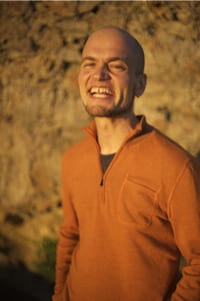
Tom Schueler — Tom Schueler brings more than 30 years of experience in practical aspects of stormwater practices to protect and restore urban watersheds to his work as Executive Director of the Chesapeake Stormwater Network, a non-profit organization devoted to implementation of more sustainable stormwater practices across the Chesapeake Bay watershed. Tom directs the Chesapeake Bay Stormwater Training Partnership, which provides webcasts, workshops and on-line training modules to train engineers on new practices. Tom also serves as the stormwater technical coordinator for the EPA Chesapeake Bay Program. Tom is active in promoting better stormwater regulations and permits in communities across the Bay. Tom joined us for a post-film discussion after Water Blues, Green Solutions.
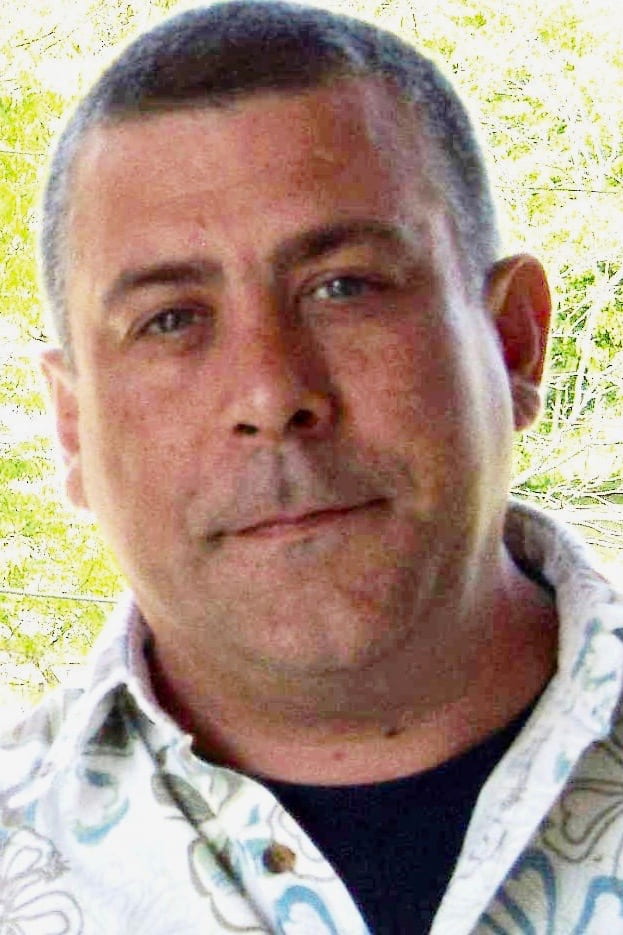
Dr. Amit Sharma – Dr. Sharma is a professor at Penn State in the Hospitality Management Department. He specializes in the finance and economics of food decisions and also has experience focusing on sustainable food systems. He is the director of Penn State’s Food Decisions Research Laboratory. He can be contacted at asharma@psu.edu. Amit joined us for a post-film conversation after Farmsteaders.
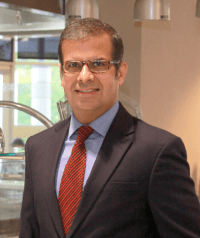
Andy Warner — Andy Warner is the Director of Penn State’s Water Initiative/Council in the Institutes of Energy and the Environment. He has worked in the water sector throughout his 30-year career, with experience in the private and public sectors, non-governmental organizations and academia. He has technical and policy expertise in water resource and water infrastructure management, watershed restoration in urban and agricultural landscapes, biodiversity conservation, environmental remediation, and ecosystem health and services. His multidisciplinary teams have developed and implemented sustainable and climate-resilient water strategies across North America, Asia, Latin America, and Africa. Andy moderated the post-film conversation at Water Blues, Green Solutions.
